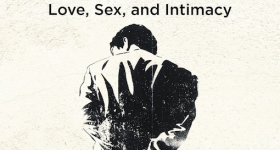Laura Miller of Salon.com isn't nearly critical enough of a book (that I haven't read) by Richard Bernstein called The East, the West, and Sex, a history of white guy/Asian chick fetishes and, according to Miller, a bit of an apologia for them as well.
As far as I can boil it down, Bernstein wishes to argue that the
history of liaisons between Eastern women and Western men should not be
condemned out of hand. In spite of the undeniable backdrop of injustice
and exploitation, some of these encounters have been a Good Thing,
offering to the men a reprieve from the repressive sexual morality of
the Christian West and to the women a chance at a less traditionally
patriarchal relationship than they might have had with many of their
countrymen. There may be manifest inequities between these couples, but
their trysts have sometimes blossomed into real affection, tenderness
and love.
Argh. Ew. Nix. But Miller goes on to, if rather gently, take apart what she perceives as the book's argument. Which is great and all, but she constantly falls short of condemning this position for what it is: racist and sexist.
The main problem, as I see it, is the veiled attitude throughout that is only revealed directly in this passage:
The subject is squirm-inducing, whether you are a Chinese man with a
humiliated heart or a Western woman feeling obscurely spurned or, for
that matter, even if you're a Western man enthralled, as Bernstein
himself seems to be, by the image of the quintessential Asian nymph,
with her "long silky hair, smooth nut-brown skin, and a perfume of
orange and spice on her breath" -- and feeling kinda defensive about
it.
Yeah, you saw it too, didn't you? "The subject is squirm-inducing, whether you're" an Asian man, a white woman, or a white man. But she didn't mention whether it's squirm-inducing if you're one of these much-desired Asian women. Is it because the subject isn't supposed to be squirm-inducing for us? (I'll admit, I'm not rendered so much squirmy as nauseated by the subject.) Or is it simply that no one thought about our perspective, either in the book or in the review?
But that's the heart of the fetish, the allure, the lust, isn't it? A whole group of "ultra feminine" babes whose perspective and desires -- for whatever reason: colonial oppression, poverty, submissiveness, etc. -- you are politically, economically, and morally empowered to ignore.
The second page of the article is even led into with: "What do Asian women get out of the relationship?" Sadly, the question remains unanswered as she dances around third-wave attitudes towards sex work, stories of Thai prostitutes taking advantage of their Western customers (does that really mean that Thai prostitutes are better at leveraging advantage, so we shouldn't be worried about them? Really?), and sound bites from Chinese women who are asked leading questions but not really allowed to simply speak for themselves.
Ugh, the whole thing still makes me sick, but I have to say, a display of such ignorance, critiqued by a critic who herself fails in perspective, just points up the fact that this conversation can't be over yet: there's still too much educating to do.
ETA: At last! An Asian American who's actually read the book! Sunny Singh posts a review of it on her blog. Check it out.
ETA: Folks, please note that the Laura Miller who wrote the review discussed above is not the same as Dr. Laura Miller, the anthropologist who wrote BEAUTY UP. Also, judy b in comments points to Slate.com's review of THE EAST, THE WEST:
This is, in the end, a darker and bleaker story than the one
Bernstein wants to tell. European and American men really did find
sexual liberation in the East. Some returned home and helped to
sexually liberate their own countries in ways we all benefit from
today. But the freedom came at the cost of exploiting an extreme form
of patriarchy in the countries they went to, and to imply that the
beaten-down, deeply deprived women wanted it is revolting.
See? It's not that hard to formulate into a sentence. On the other hand, the author, Johann Hari, also wrote this:
Bernstein's
story—and ours—ends with a strange irony. With the sole and ongoing
exception of Southeast Asia, in this sexual conflict East and West have
swapped sides—suddenly and definitively. "The very places where Western
men in the past sought pleasures and excitements are today amongst the
most sexually conservative places on the planet." Burton saw the Arab
Middle East as a font of sexual freedom; today, he would be beheaded
there for acting as he did.In most of the East—in Africa, China, India, and the Middle East—this flip happened very fast. In the mid-19th
century, "most of the world still subscribed to the harem culture, and
in only the few small countries of the West, the small peninsular
domain of Christendom, did a different attitude prevail." By the end of
the century, it was the other way around.How did this happen?
Frustratingly, Bernstein doesn't offer many convincing explanations,
but he does note that the colonial East attracted more missionaries
than Burtons in the end. In Somerset Maugham's novel Rain,
a missionary complains, "I think [it] was the most difficult part of my
work, to instill in the natives a sense of sin." But they did. They
succeeded. They soaked the East in a Western sense of sin, and saw it
freeze up into a new frigidity.
Seriously? He can't see anything to critique here? "The missionaries did it?" Seriously? What about communism? What about Islamic fundamentalism? What about the fact that most women's lives throughout this whole history were sexually conservative lives, controlled by fathers and husbands who couldn't afford more than one wife, but could afford to keep their daughters out of prostitution and concubinage? What about how politically egalitarian movements of the late nineteenth and twentieth centuries opened up class mobility for many people, thus shoving many more families into the sexually conservative classes? How about the fact that all revolutionary movements have relied and still do rely on women activists, and promise much (and deliver some) freedoms for women under new regimes?
And how about ... and I can't believe no one thought to mention this ... fucking women's movements ferchrissake? It's not like the twentieth century globe wasn't riddled with them. And what characterizes the first ... uh ... wave of a women's movement; at least, as we know it here in the States? That's right: sexual conservatism. After all, women whose sexuality is being externally controlled, have first to prove that they can control their own sexuality. (And then have to prove it again, and again, and again ...)









Comments